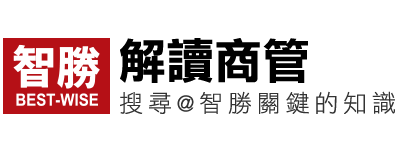Hot News
| 中文篇名 |
天命動力模型:儒家道德領導之前因歷程研究 | |
|---|---|---|
| 英文篇名 |
Confucian Heaven-dynamic Model: The Antecedent Process of Confucian Ethical Leadership | |
| 作者 | ||
| 中文摘要 |
面對全球經濟不平等和環境惡化問題,商業世界亟需推廣企業倫理,以確保整體人類之永續繁榮。而企業倫理的實踐需要道德領導者的培養,為企業注入正派經營的理念。在東亞社會,「儒家道德領導」的興起有其獨特的歷史脈絡,其所根植之儒家倫理有別於西方哲學,特別重視道德主體性,其所孕育的東亞儒商傳統亦歷史悠久。因此,本研究採取主位研究方式探索儒家道德領導的前因歷程。首先,本研究透過文化系統方法分析儒家道德領導高度價值自覺的文化特色—即不論環境良窳,皆不斷修養以實踐道德價值的「士之倫理」。其次,本研究以日本儒商稻盛和夫為個案研究對象,探索儒家道德領導前因歷程。發現個案能在基本心理需求未被滿足的情形下,憑藉道德意志實踐三項善行:對人推己、對事盡己、對己克己,進而締造和人、成事、修己三項環境成果,回頭滿足連繫感、勝任感、自主性三項基本心理需求,並強化儒商持續道德領導的動力,形成善循環。個案之所以能在艱困的環境中展現強韌的道德意志,乃因其對天的信仰帶來強大的意義感動力。相對於西方聚焦於心理動力,儒家的天命動力呈現東亞文化特色。根據個案上究天人之際、下盡人事之紀的行誼,本研究建構「天命動力模型」,以理論化儒家道德領導的前因歷程。此模型顯示個案因知天命而能超越環境限制,不斷修養、濟世教化,從而呼應儒家士之倫理、呈現內聖外王理想的具體實踐。 | |
| 英文摘要 |
Business ethics are critical in addressing the growing economic inequality and mounting environmental challenges in our civilization. Ethical leadership plays a crucial role in promoting business ethics for a better tomorrow. Considering the cultural differences between the East and the West, this paper adopted an emic approach to examining the antecedent process of Confucian ethical leadership. A case study of Kazuo Inamori, a Japanese Confucian merchant, revealed the formation process of Confucian ethical leadership. Even in adversity, Inamori demonstrated strong moral volition to be benevolent, diligent, and temperate. These ethical behaviors often led to positive outcomes in interpersonal relationships, job performance, and self-cultivation, thereby fulfilling basic psychological needs and further enhancing ethical motivation. Additionally, the research revealed that his initial ethical motivation originated from his reflection which resulted in a firm belief in “Heaven.” Accordingly, the “Confucian Heaven-dynamic model” was constructed to illustrate the antecedent process of Confucian ethical leadership. | |
| 關鍵詞 |
內聖外王、天命、企業倫理、道德領導、儒商、inner sage and outer king、Heaven、business ethics、ethical leadership、Confucian merchant | |
| 刊名 | ||
| 期數 | ||
| 起訖頁 |
099-180 | |
| 出版單位 | ||
| DOI | ||
| QRCode |
| |
| 上一篇 |



